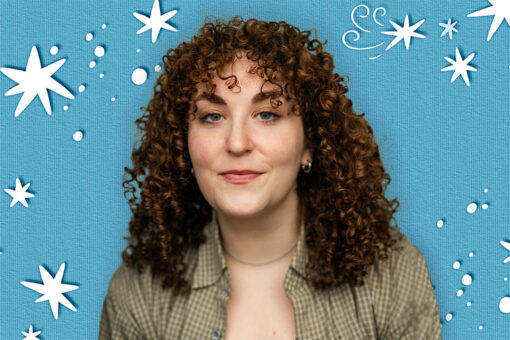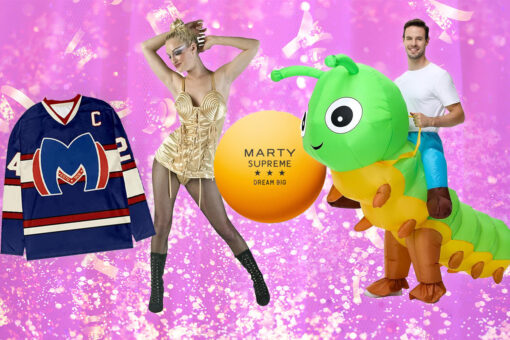Self-isolating sucks major tuchus.
Being forced to work at home and bail on all social responsibilities is an introvert’s dream, right? Not so much for me. The COVID-19 pandemic has felt like a never-ending tour of Six Flags — from Superman to El Toro, I’ve ridden every emotional rollercoaster and skipped the lines with a Platinum flash pass.
In reality, the lows come from underlying existential dread, relieved only momentarily by the euphoria of ripping open a new packet of oatmeal (or experiencing orgasm). Yes, under quarantine, my mental health lies in the hands of Pornhub and Quaker Oats (brown sugar cinnamon obviously reigns supreme).
Thanks to the pandemic people are calling the “11th plague,” my life feels like the Disney live-action remake of Genesis and Exodus that I most certainly didn’t ask for. Paris Hilton would agree that role-play is “hot,” but being forced inside to deal with so much anxiety when the diaspora is supposed to be celebrating freedom from slavery? Totally not.
On April 8, the night of the first seder, Jews will be confronted with an updated version of “Ma Nishtana,” the Four Questions, we’re struggling to answer: Why isn’t this night different from all the other quarantined days, and what the actual fuck do we do?
We look to Miriam the Prophetess. That’s what we do.
Moses, the son of Amram and Yocheved, is revered as the most important Biblical leader who led Jews out of slavery into the Promised Land. But behind every successful prophet stands a badass Biblical babe — in this case, an older sister — who did the dirty work to get him there. Sliding into Pharaoh’s DMs to triple text, “Let my people go”? Piece of cake. Showing the ancient Israelites how to be free after years of forced slavery? Now that’s like swallowing a piece of matzah with a dry mouth. But with a timbrel in hand, Miriam used the universal key of creativity to unlock the stainless steel handcuffs that shackled her nation.
The eldest of three prophets — including Aaron and Moses, her baby brothers — Miriam was born right into the reign of the new Pharaoh on the block, famous for enslaving the Israelites. And so her parents, Amram and Yocheved (a very incestuous marriage, but that’s a story for another day), named their firstborn Miriam, which means “bitter,” which is kind of fucked up but, spoiler alert, our heroine did not become a manifestation of her name. At the age of 6, young Miriam worked as a midwife for the Egyptian women with her mother under the name “Puah,” so when our story’s villain ordered the execution of all newborn male Jews, she defied the patriarchy and lied through her teeth to help save her little brother, Moses.
But let’s back up a hot sec. A year before Moses was born, Miriam’s parents separated because, before birth control and ultrasounds, they feared having another son whose fate would be death. Full of chutzpah — and driven by a prophecy from God that her brother would lead the Israelites out of slavery — Miriam convinced Amram to get back together with her mom. She told him that as the nation’s leader, he was setting the wrong example for his people by no longer procreating, which, yes, would prevent the death of many baby boys, but simultaneously put a dent in the female population (a feminist icon wise beyond her years!).
Fast forward a year after the prophets’ parents reunited with a quickie and the couple’s third son, Moses, was born. As the famed story goes, Miriam brought her adorable baby brother to the Nile and sent him down the river in a basket, where his adopted mother, Pharaoh’s Daughter (yes, her name is literally Pharaoh’s Daughter) scooped him up and named him Moses because she “drew him out of the water.”
More fast forwarding: Moses grows up, accidentally kills a dude, discovers the Burning Bush, and yadda, yadda, yadda. And now we get to the action scene: crossing the Red Sea. The Egyptians were like, “Not so fast!!” and God was like, “Nah, Moses, do your thing.” So Moses does the thing, splits the Red Sea, and the Egyptians drown while the Israelites escape to the other side. At last, they escaped the brutality of bondage and emerged physically unscathed! But emotionally? After a generation of living and breathing enslavement and abuse, they were kind of fucked up.
So what does Miriam do? She whips out her timbrel.
“Then Miriam the prophet, Aaron’s sister, took a timbrel in her hand, and all the women followed her, with timbrels and dancing. And Miriam sang back to them: Sing to the Lord, for He is highly exalted; the horse and rider he has thrown into the sea.” (Exodus 15:20-21.)
This is the first time Miriam is referred to by name (kind of rude) in the Torah. Sashaying side to side, she leads the Israelite women in a victorious celebration, teaching them how to own their newfound freedom through song and dance. And as they took their first steps towards the Promised Land, singing the Song of Miriam, Midrash tells us that God blessed his female prophetess with the well of the water — one of three gifts the Jews were blessed with post-Exodus — that quenched the Israelite’s thirst over their 40-year voyage in the barren desert.
Miriam’s legacy ought not to be that she was a young midwife, or that she waited in the reeds to see her infant brother off. Her parents named her “bitter,” but Miriam filled her depleting cup with water until it overflowed, earning her name another interpretation: Mistress of the Sea. Like the Israelites who mimicked Miriam’s vitality to gain their footing in a desolate place, so should we be inspired to replenish ourselves — drained by the emotional toll of what feels like an apocalypse — and quench our thirst with music, dance, and art.
Some people say we’re in a creative renaissance — and I agree. My evenings are filled with creative projects, and somehow, I’m even busier than I was pre-coronavirus. Passover is different this year, and nothing will change that. Our physical bodies may be self-isolated for many months to come, but nothing’s stopping us from drinking from Miriam’s Cup this Passover to unlock our creative potential. Also, nothing’s stopping us from drinking lots of actual water. Stay hydrated, friends!
Header image design by Grace Yagel.



